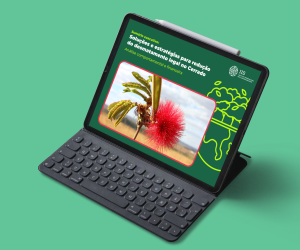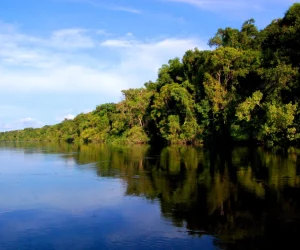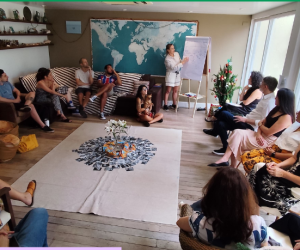Boosting Assisted Natural Regeneration: Solutions for Mato Grosso and Pará
Amid the growing threats of climate change, deforestation, and biodiversity loss, large-scale restoration initiatives are essential to mitigate environmental degradation, promote ecosystem resilience, and improve the quality of life for local populations.
Assisted Natural Regeneration (ANR) is a low-cost approach that can play a key role in this context, helping Brazil meet its restoration goals and advance climate change mitigation. However, the widespread adoption of ANR still faces challenges, such as the lack of robust information on its characteristics, potentials, risks, challenges, and current and future opportunities, as well as application methods.
Considering the enormous potential for ANR in Brazil, particularly in the Amazon, where an estimated 17 million hectares of secondary vegetation exist, it is crucial to understand the factors that can help boost this approach. The states of Pará and Mato Grosso are particularly important in this context, as they house significant fragments of the Amazon Rainforest and are already engaged in restoration-related discussions.
In this context, the project “Boosting Assisted Natural Regeneration: Solutions for Mato Grosso and Pará,” carried out in partnership between the International Institute for Sustainability (IIS), the World Resources Institute Brazil (WRI-Brasil), and the Alliance for the Restoration of the Amazon, proposed the systematization and development of institutional arrangements and financial mechanisms to implement Assisted Natural Regeneration (ANR) in these two key regions for Amazon conservation.
The study analyzes the impact of ANR and identifies bottlenecks, proposing solutions and recommendations to expand its implementation. Running from August to November 2024, the project was divided into two phases: the first focused on systematizing information, and the second on critical analyses and proposing solutions. Throughout the process, contributions from various key stakeholders in the Brazilian Legal Amazon (BLA) were incorporated.
As a result, the project develops a portfolio of institutional, financial arrangements, and strategies to scale up ANR initiatives at regional and national levels, validated through a virtual workshop where relevant suggestions and contributions will be incorporated. The aim is to scale ANR efforts in municipalities and states, inspiring similar actions in other regions of Brazil.
By promoting the study of native vegetation natural regeneration, we develop effective solutions for new initiatives, increasing the efficiency of ANR projects and contributing to biodiversity conservation and climate change mitigation.









